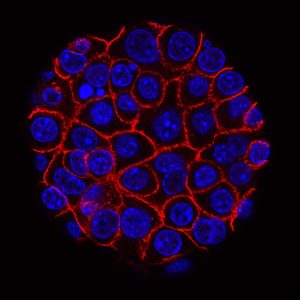Novartis pulls Zometa submission after breast cancer failure
pharmafile | December 13, 2010 | News story | Research and Development, Sales and Marketing | Novatis, Zometa, breast cancer, zoledronic
Novartis has pulled Zometa’s marketing application for an early breast cancer indication after the drug failed to meet its primary endpoint of improving disease free survival.
Results from the phase III AZURE trial showed Zometa (zoledronic acid) did not demonstrate a disease-free survival advantage when added to standard adjuvant chemotherapy and/or hormonal therapy in pre- and postmenopausal women with early breast cancer.
The AZURE trial was conducted to determine if Zometa, used after surgery, could prevent recurrences in premenopausal and postmenopausal women with early breast cancer.
Last year Novartis had more positive results from its phase III ABSCG-12 trial showing the addition of three years of Zometa therapy to hormonal therapy following surgery improved disease-free survival by 32 per cent.
Based on the results of ABSCG-12, Novartis filed supplemental marketing authorisation Zometa in early stage breast cancer in both the US and EU.
In light of the AZURE trial results, however, Novartis has said it will have to withdraw the current marketing applications and discuss next steps with health authorities.
Hervé Hoppenot, president of Novartis oncology, said: “These trial results do not impact the current usage of Zometa, which continues to be a critical treatment for many patients with a broad range of metastatic cancers and multiple myeloma.”
“Although we did not see an overall disease free survival advantage for early breast cancer patients receiving Zometa in the adjuvant setting, we’re encouraged that a subset of postmenopausal patients in the trial experienced an improvement.”
Novartis said the study’s results do not impact the indications for which Zometa – the most widely used bisphosphonate in oncology – is currently approved.
These include the reduction or delay of bone complications across a broad range of metastatic cancers, the treatment of hypercalcaemia of malignancy (HCM).
Ben Adams
Related Content

FDA accepts BLA for AstraZeneca and Daiichi Sankyo’s datopotamab deruxtecan for breast cancer treatment
AstraZeneca and Daiichi Sankyo have announced that their Biologics License Application (BLA) for datopotamab deruxtecan …

Genentech shares positive results from phase 3 trial for breast cancer treatment
Genentech, a member of the Roche Group, has announced positive results from the phase 3 …

FDA approves AstraZeneca’s Truqap plus Faslodex for breast cancer treatment
AstraZeneca has announced that the US Food and Drug Administration (FDA) has approved Truqap (capivasertib) …








